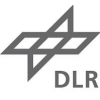
Master Student Machine Learning, Informatics, Engineering, Physics or similar (f/m/x) - Anwendungsentwicklung, Ingenieur
Steigen Sie ein in die faszinierende Welt des Deutschen Zentrums für Luft- und Raumfahrt (DLR), um mit Forschung und Innovation die Zukunft mitzugestalten! Mit dem Know-how und der Neugier unserer 11.
000 Mitarbeitenden aus 100 Nationen sowie unserer einzigartigen Infrastruktur, bieten wir ein spannendes und inspirierendes Arbeitsumfeld.
Gemeinsam entwickeln wir nachhaltige Technologien und tragen so zur Lösung globaler Herausforderungen bei. Möchten Sie diese große Zukunftsaufgabe mit uns zusammen angehen?
Dann ist Ihr Platz bei uns!
For our Institute for Solar Research in Köln we are looking for a Master Student Machine Learning, Informatics, Engineering, Physics or similar (f / m / x), Artificial Intelligence for Operating a Full Heliostat Field
Das erwartet Sie :
Do you want to actively shape a sustainable future through your research in machine learning? Then you've come to the right place! In this collaboration of the TU Delft and the German Aerospace Center (DLR) Institute of Solar Research, scientists and engineers are working to make environmentally friendly energy supply technically and economically feasible using modern Artificial Intelligence (AI) Techniques.
In the Solar Power Plant Technology department, we conduct machine learning tasks with experimental validation to develop and test methods for an intelligent and autonomous solar tower power plant of the future.
At a solar power plant, a field of dual-axis tracking mirrors, called heliostats, focuses sunlight onto a central receiver.
Each heliostats focal spot has a desired aimpoint, which is determined by complex algorithms depending on time and weather.
Precision is crucial, as it directly impacts the plant's efficiency. Traditionally, each heliostat undergoes regular calibration to maintain stable precision throughout the year.
However, despite continuous efforts, achieving the desired level of accuracy has remained elusive.
We are seeking a talented individual to help us overcome these challenges by developing a neural network which learns how to move all heliostats depending on direct feedback from the receiver.
In this exploratory study, a ray tracer is employed to generate superimposed flux densities within a designated area. As the sun moves, the focal points gradually shift out of this area.
The network must learn to adjust the heliostats based on the sun’s position and identify which heliostats typically require additional corrections to stay within the target area.
Various network architectures, such as GANs or transformers, and learning algorithms, including supervised and reinforcement learning, can be applied for this task.
If the test proves successful, further optimization of the distribution within the area is possible. Additionally, if time permits, experiments at the real solar tower power plant in Jülich could be conducted.
As part of our team, you will have the opportunity to work with cutting-edge GPU clusters and collaborate closely with experienced machine learning developers.
This position offers a unique chance to contribute to innovative solutions that will enhance the efficiency and reliability of solar power plants, driving forward the future of renewable energy.
If you are passionate about applying advanced machine learning techniques to solve real-world problems and want to work in a collaborative environment with top-tier technology and expertise, we encourage you to apply.
Your tasks during the master thesis are :
- choose a neural network architecture and learning procedure (reinforcement or supervised)
- generate synthetic data based on the chosen learning procedure using an existing ray tracing pipeline
- train the neural network for keeping focal spots inside a defined area
- Optional : train for specific aim point distributions
- Optional : test at the Jülich research power plant
You will be part of an interdisciplinary and international team of scientists from the fields of engineering, physics, informatics and mathematics.
Our departments have experts in both modeling machine learning pipelines and experimental validation, who will be happy to support you.
Das erwarten wir von Ihnen :
- You are a master student in computer science, mechanical engineering, mathematics, physics, automation technology, electrical engineering, or a
- related field.
- You possess excellent knowledge of Python and PyTorch, enabling you to work independently on state-of-the-art deep learning models.
- You have outstanding academic performance, with prior knowledge in deep learning and, ideally, generative models in the image domain.
- You demonstrate a structured, independent, and goal-oriented work style.
- You have strong English skills, which are necessary for studying technical literature, initiative and the ability to work independently.
Unser Angebot :
Das DLR steht für Vielfalt, Wertschätzung und Gleichstellung aller Menschen. Wir fördern eigenverantwortliches Arbeiten und die individuelle Weiterentwicklung unserer Mitarbeitenden im persönlichen und beruflichen Umfeld.
Dafür stehen Ihnen unsere zahlreichen Fort- und Weiterbildungsmöglichkeiten zur Verfügung. Chancengerechtigkeit ist uns ein besonderes Anliegen, wir möchten daher insbesondere den Anteil von Frauen in der Wissenschaft und Führung erhöhen.
Bewerbungen schwerbehinderter Menschen bevorzugen wir bei fachlicher Eignung.
Weitere Angaben :
- Eintrittsdatum : sofort
- Dauer : 6 - 9 months
- Vergütung : Je nach Qualifikation und Aufgabenübertragung bis Entgeltgruppe 05 TVöD.
- Kennziffer : 98170





